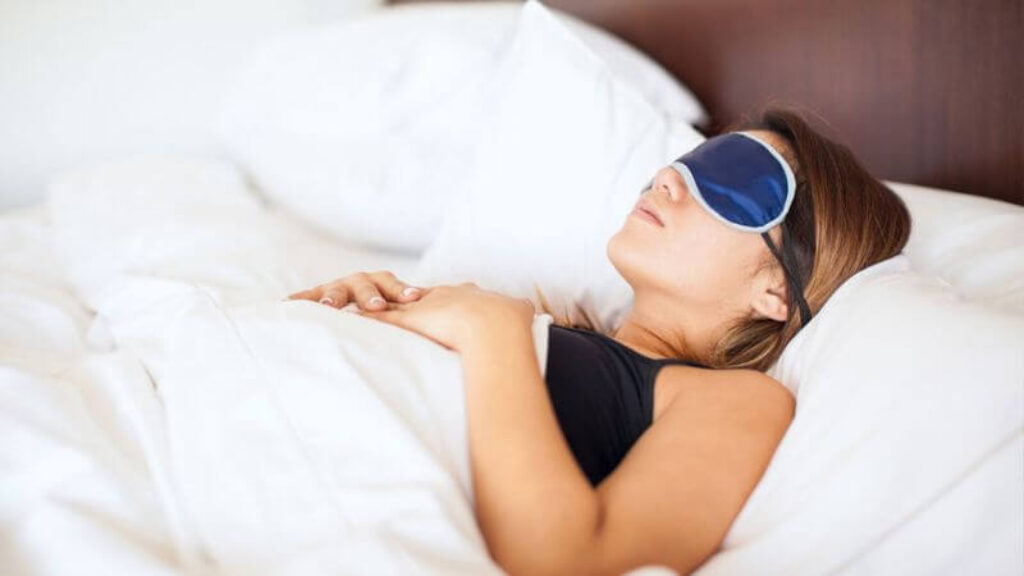Top Stress Management Techniques: Take a Break & Rejuvenate!
Are you getting worked up by juggling between family, office, and other commitments? You are not alone! Nowadays, stress has become an integral part of human life. However, some stress management techniques can bring back calm and peace in your life. Try any of the stress relievers on our list to get quick relief!
In today’s fast-paced world, stress feels like a close companion that tags with us constantly. It feels like stress is a tight knot on our shoulders that continuously becomes strong with piling up personal responsibilities and unending deadlines at work.
While taking little stress is considered healthy, chronic stress can adversely impact your physical and mental well-being. Stressors such as relationships, family, health, work, and finances are the most common and affect every single individual.
A 2014 survey revealed that every 4 in 10 adults experienced stress (41%) and worry (42%) and 1 in four adults experienced sadness (28%) and anger (23%).
Stress has become a normal reaction to the different difficult situations that life puts us in. However, prolonged stress can disturb your sleeping patterns, weaken your immune system, cause depression, anxiety, and much more.
Luckily, there are numerous ways of relieving stress that can help you manage it proactively and improve your well-being.
In this post, we have come up with top stress management techniques that will help you start your day with a clear head and give you a sense of calm.
Let’s dive into the techniques of relieving stress and creating a fulfilling and balanced life!
Understanding the Stress: Types, Levels, Negative Impacts on Health, and Identifying Triggers

Stress is a state of mental tension or worry caused by various difficult situations in life. Every single individual experiences stress to some degree.
Symptoms of stress are:
So, these are some symptoms of stress. Stress is further divided into two categories i.e. acute and chronic.
Acute Stress
Acute stress is a natural response to difficult situations and challenges. This type of stress helps us perform better and tackle the situation.
Also, check- 30 Best Anti-Aging Foods That Keep Your Skin Younger
Chronic Stress

Chronic stress is a situation in which a person faces multiple stressors at once. Chronic stress causes harm to physical and mental well-being because it keeps your body on high alert, even when the situation is normal.
Here are the negative impacts of chronic stress on physical and mental health.
Although occasional and small stress dozes are not considered harmful, living a prolonged stressful life can adversely affect emotional, physical, and psychological well-being.
When it comes to managing stress, one-size-fits-all is not applicable. Your stress management regime can be completely different from others because it is based on the type and frequency of the stress.
Therefore, understanding stress levels can be helpful. You need to watch out for the following physical health indicators for better awareness and analyze if things are getting out of hand.
Many stress counselors utilize the following biofeedback technology to analyze the level of stress in their clients.
Identifying Stress Triggers
To begin the journey of stress management, you need to identify the triggers to manage it well. Once you identify them, you can note down the triggers and see how your body responds to them. This is like finding your enemy and developing strategies to deal with it.
The most common triggers include:
06 Top Stress Management Techniques To Bring Calm and Rejuvenation in Life

Any level of stress feels like you are its prisoner but not anymore. By incorporating the following stress management techniques into your daily life, you can bring calmness and rejuvenation to your daily life.
Meditation and Mindfulness
Developing meditation and mindfulness habits can do wonders for your health. This stress management technique brings calm in the middle of a chaotic life. Mindfulness is a mental state of being completely present in the current moment. It is all about paying attention to your inner experience (feelings, thoughts, and sensations) and surroundings. Meditation aids in cultivating mindfulness.
When you train your brain to focus on the moment, it helps in:
Relaxation Techniques

How to relieve stress quickly? With the help of relaxation techniques, you can get rid of stress immediately. It includes progressive muscle relaxation and deep breathing.
Diet

Eating healthy food not only improves physical health but also enhances your mental well-being. A healthy diet improves your immune system, reduces the effect of stress, manages blood pressure, and enhances your overall mood. Conversely, eating junk and sugary food adversely affects stress levels.
To stay fit and healthy, add more proteins and carbohydrates to your diet such as eggs, meat, nuts, and fish. Antioxidants such as berries, fruits, vegetables, beans, etc. also protect your body cells that chronic stress impacts.
Whenever you leave home, consider carrying healthy snacks to avoid eating junk food, and processed food. However, if you enjoy eating junk and processed foods, eat wisely. Ensure that you add vitamin C, omega-3 fatty acids, and magnesium to your diet as they help in lowering the impact of stress on your body.
Avoid Unhealthy Stress Relievers

Many people are so stressed that they consciously or unconsciously develop unhealthy coping mechanisms to deal with it. Unhealthy stress relievers might reduce your stress levels for a while. However, such unhealthy stress relievers can cause severe damage to your health in the long run.
Unhealthy stress relievers includes:
Such stress relievers don’t contribute a bit to coping with stress. On the flip side, it damages your physical and emotional health. You need to find healthy ways to relieve stress to avoid causing damage to your being.
Sleeping

Stress impacts sleeping patterns, and their quality, and even leads to insomnia. Sleeping difficulties are one of the common side effects of stress. If you are not able to sleep 3 times a week for a couple of months, you might have developed insomnia. Lack of adequate sleep can increase the levels of stress and lead to a continuous cycle of sleeplessness and stressful nights.
You start developing healthy sleep habits. From setting up your bedroom to fine-tuning your daily routine, you need to incorporate healthy habits in your life to enjoy good sleep every day. This includes regular exercising, setting up a sleep schedule, soaking in more sunlight, drinking less alcohol or caffeine before going to bed, and avoiding using phones at least 30 minutes before bed.
Your body needs to be charged, the way your mobile phone does. Getting good sleep helps in regulating stress hormones like cortisol. Developing good sleep habits also keeps you resilient and sharp.
Practice 4 Essential A’s

Although many times stress arises at unusual or unexpected times, some stressors happen regularly such as meeting with a boss, commuting to work, etc. In such situations, stressors are predictable, so you can work on your reaction or change the circumstances.
Here, you can practice 4 essential A’s i.e. avoid, alter, adapt, and accept to handle predictable stressors.
The Bottomline
These stress reduction techniques will greatly improve your physical and emotional well-being. Now that you are through with top stress management techniques, you are ready to conquer your stress and wake up rejuvenated every morning.
Start incorporating these stress reduction techniques into your daily life.
Remember, stress management is not a one-time process, it is a journey. Understand what techniques work best for you and see how your physical and mental well-being elevates with your efforts.
We hope you learned how to manage stress.
Please share what makes you more stressful in daily life; is it work, personal life, or other responsibilities and commitments? We would love to hear from you!











